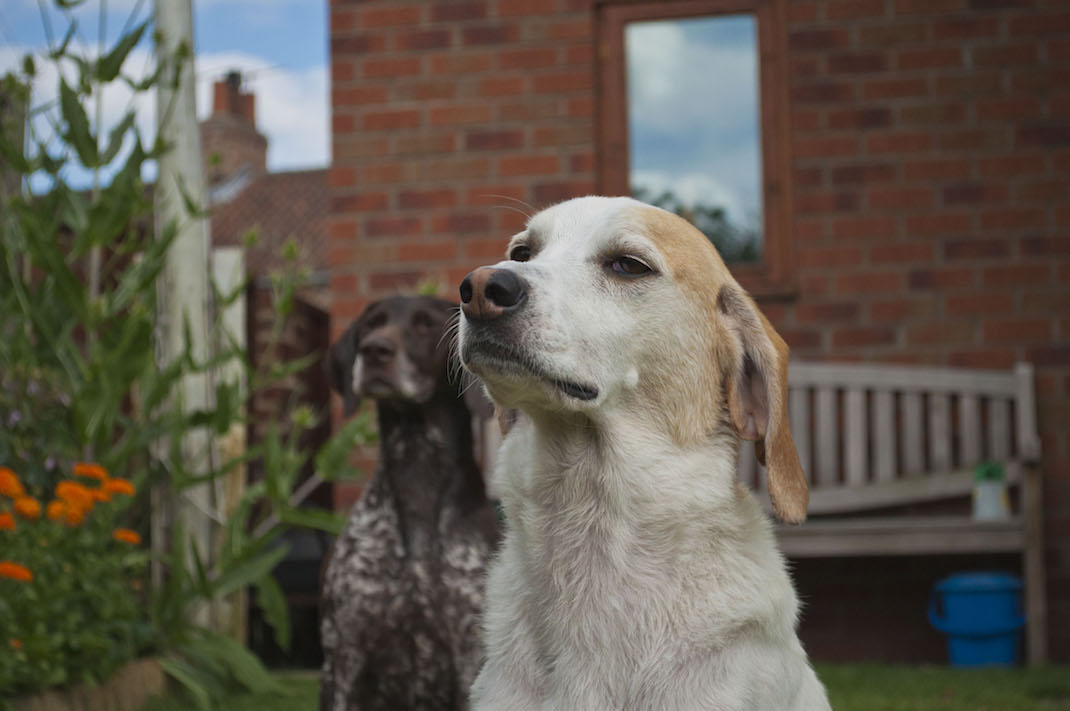
Pet Friendly Gardens
Pet Friendly Gardens
We have two dogs and two guinea pigs who love to play and sunbath in the garden. But it’s usually forgotten that the garden can also be a dangerous place for our beloved pets. So what are the things we need to look out for and take into consideration.
Lawns
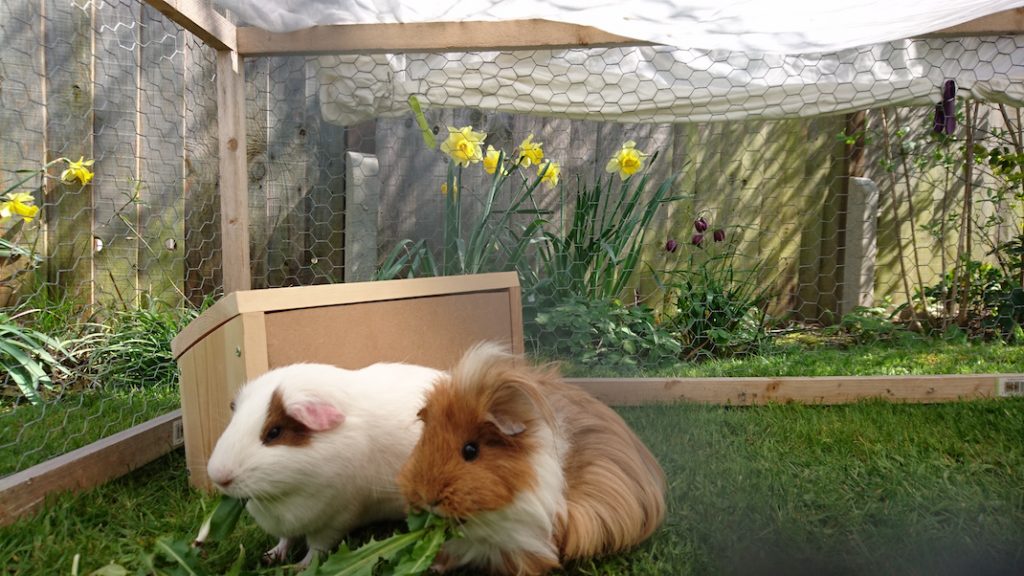
If you have doggies like us that pee with acid! then you will be in the same boat as us. We have tried ketchup, dog rocks and a specially designed spray to go on after and nothing works other than going out in the morning with your dog and a bucket of water. Yes my parents make me do this at their house, we even had an experiment to see who burn the grass the most their female dog and my male dog. The results showed no difference between the two. If you’re thinking how we did this we had different coloured sticks in the lawn, and yes it did turn into a pin cushion lawn. However in our garden we don’t go out in our pjs first thing in the morning and as a result the area they concentrate their morning pee in has no grass anymore. The remedy either go out first thing or re patch your grass every year. This year I’m going to try Aftercut patch Fix total lawn repair which is supposed to be good for going on ground that has been burnt by dog pee, we will see what happens. Watch this space.
Its not just dog pee that destroys the grass its them running around tearing it up so a good hard wearing grass mix is essential in any pet lovers garden. There are lots of companies out there that sell good quality grass seed mix and also hard wearing mix in turf.
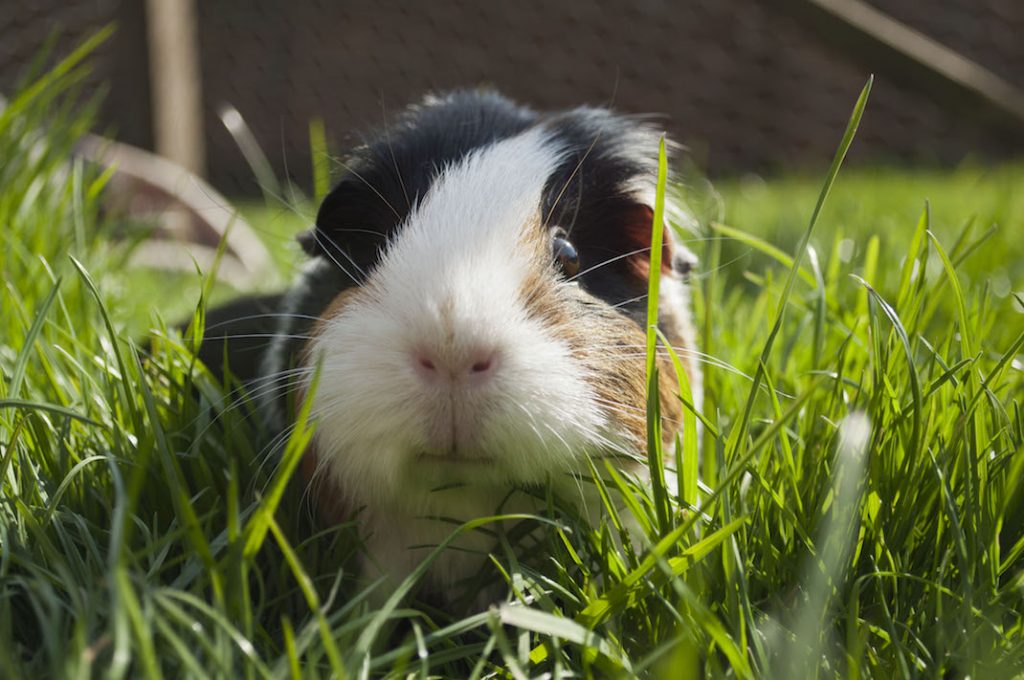
Weeds and Plants
Most pets have a curious nature and want to explore and this includes chewing on things in our garden. The most common weeds and plants that are poisonous (this is not an extensive list) are ragwort – Senecio jacobaea, creeping buttercup – Ranunculus repens, Velvet Grass otherwise known as Tufted Grass – Holcus lanatus, Holly –Ilex, Buttercup –Ranunculus, Corn Cockle – Agrostemma githago, Helmlock – Conium maculatum, Day Lily – Hemerocallis, Morning Glory – Ipomoea tricolor ‘Heavenly Blue’, Monkshood – Aconitum, Skunk Cabbage – Lysichiton americanus, Crocus, Lilies – Lilium, Daffodils – Narcissus, Clematis, Foxglove – Digitalis, Euphorbia and Lily of the Valley – Convallaria majalis. Plants in you’re vegetable patch that pets should avoid are tomatoes, onions, rhubarb, potatoes and grape vines, plants that have thorns such as gooseberries can also be a hazard for pets.
Have a look at my post on Plants that Will Kill, Maim, Intoxicate and Definitely Offend for some more plants that are toxic to humans as well as our furry friends.
Try to avoid weed killers especially on your lawn if your dog or cat eats grass and especially if you have rabbits or guinea pigs that do eat grass. Instead remove them by hand, there are some cool tools that make it easier to remove these from your lawn and borders.
If you suspect your pet has eaten something poisonous then take your pet to your vet immediately ideally with a sample of the plant that your pet has eaten if you know what it is. Typical symptoms that they may experience is vomiting, diarrhea, heavy panting or breathing, acting like they are depressed and have no energy.
Sheds
Sheds including mine is a very hazardous place, my shed has tools in the correct holding places, but as my toes will tell you tools that don’t fit on pegs or that are just left on the side because they are “waiting to be cleaned, repaired or simply I was too lazy to put them away” will and do fall on unsuspecting toes and they always do it when you are just in your socks or flip flops never when you’re wearing steelies etc. It is not just tools but chemicals and compost that are hazardous for pets. Ideally keep these out of reach of pets.
Compost Bin
Compost bins should always have a lid to keep them closed so pets including rats and foxes can’t forage. Compost is actually a dangerous place when food is decomposing so always wear a mask when turning your compost. If you want more informaiton on how to compost and what to put in your compost see my post on Rotting to the Core – Composting for Beginners
Steps
Older pets will appreciate low rising, deep steps as steeper steps will be harder to negotiate.
Slugs and Snails
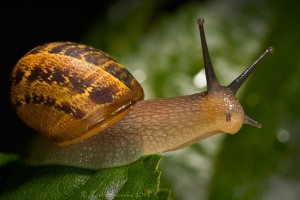
Slugs and snails are always an unwanted pest in any garden, but for pets they can be harmful as they can carry the parasite lungworm. A great website I found which explains this threat much better than I ever could is Lungworm.co.uk The website is packed with information and pictures, it really is worth a look.
Water
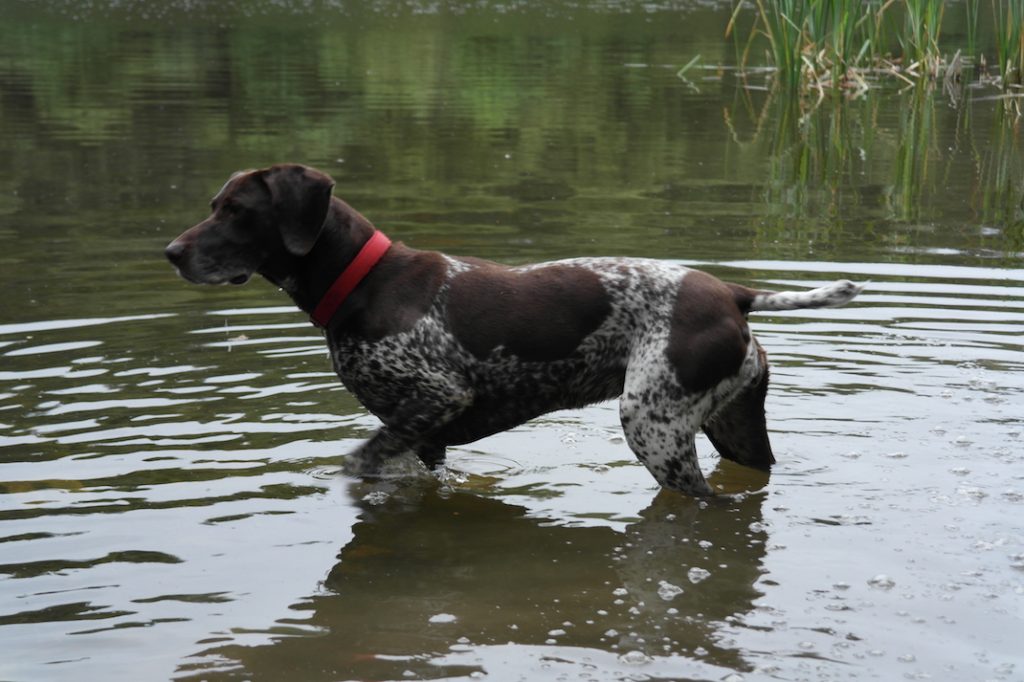
Water is really important for wildlife and a water bowl for your pets is also essential, a bird bath aka the dog water bowl which is clearly tastier than their actual dogs outside water bowl is much safer than a pond. Ponds can be dangerous for obvious reasons including drowning, but if you provide a suitable wire mesh that can withstand the weight of a dog etc so they don’t drown if they fall in the water. This is unsightly but could save your pets life if you really want a pond. Bird ponds are great for wildlife, but do make sure you clean them regularly so they don’t spread diseases.
Fences and Walls
Fences can be unsightly, but necessary to stop your pets escaping and running riot in your neighbours garden and worse still onto the road. You can grow all sorts up fences and plant shrubs in beds infront. Fences also come in different styles so you don’t have to stick to the traditional ones. There is also the option of painting your fences or creating wall art. If you have a wall instead of a fence then putting trellis on top if it is not high enough will provide a means of extending the wall and providing something for a climbing plant to attach to.
Shade
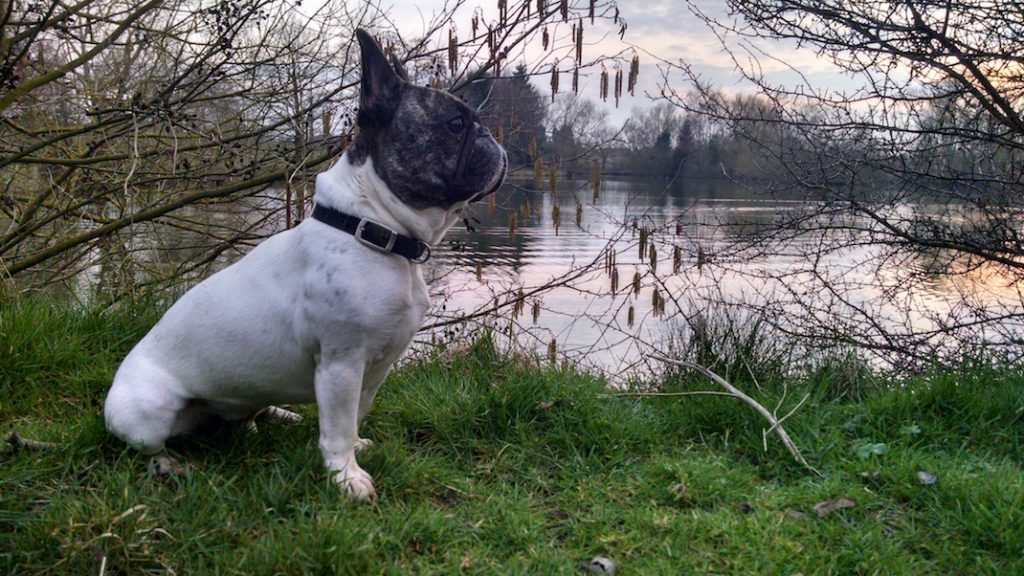
It is important to have somewhere in your garden that casts shade throughout the day so if your pets are outside they can retreat from the heat of the sun. You can use trees, shrubs or a plant covered pergola. There are lots of small trees that are designed for small gardens if you don’t have the space.
Gravel
Stone paving, concrete, tarmac and wooden decking in hot wether can be uncomfortable for paws so gravel paths are an alternative hard wearing path solution.
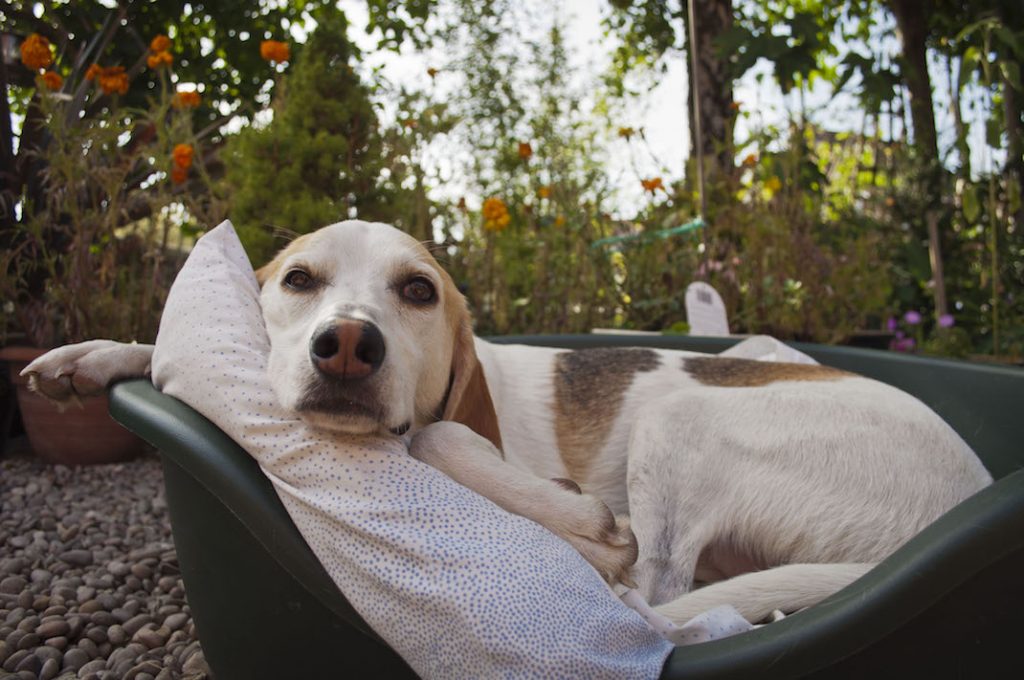
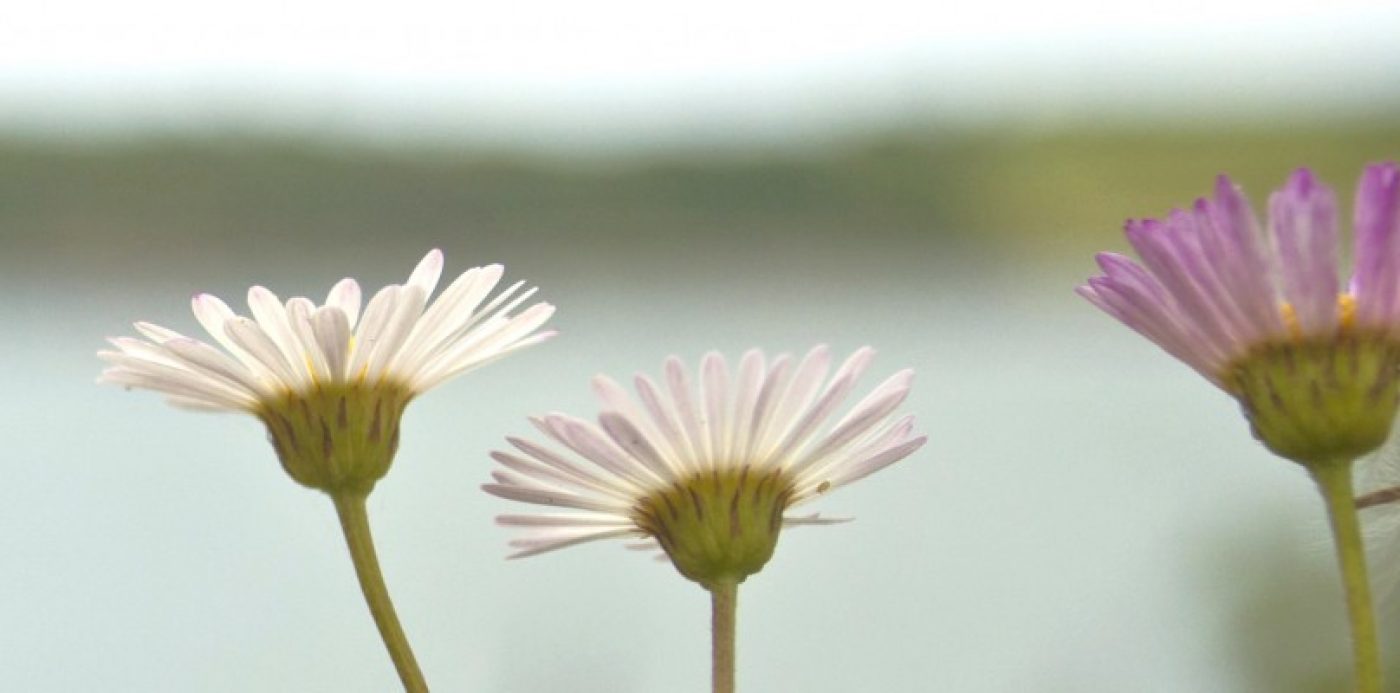
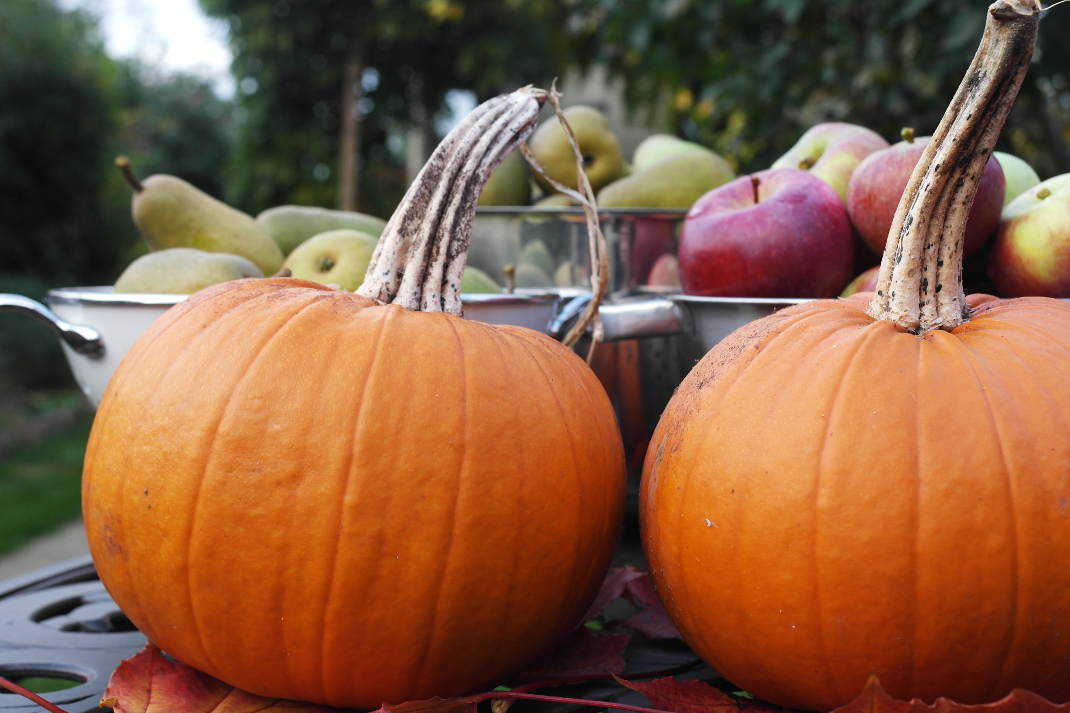
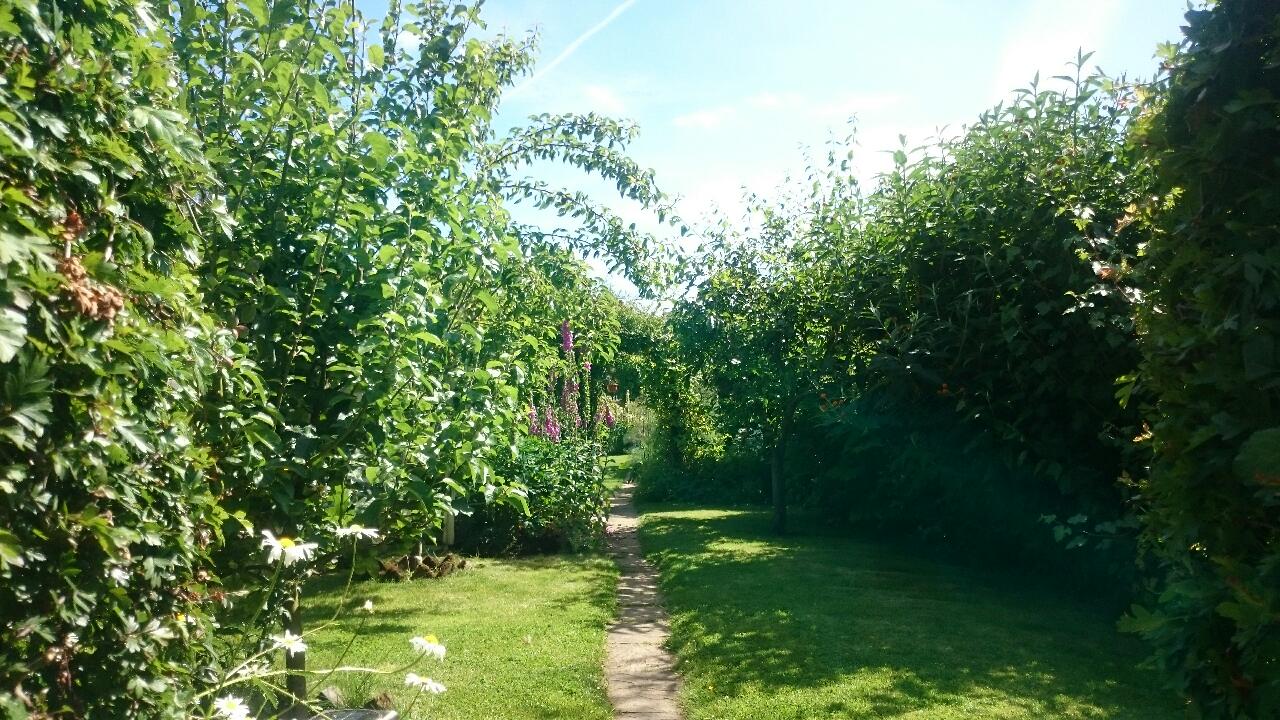
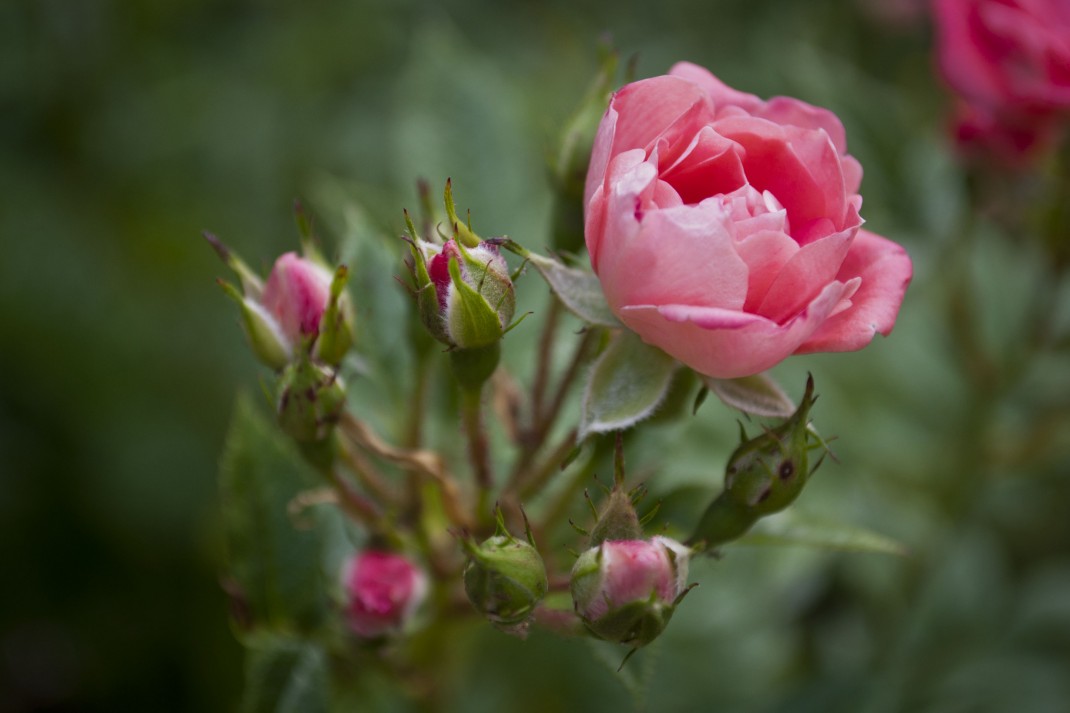
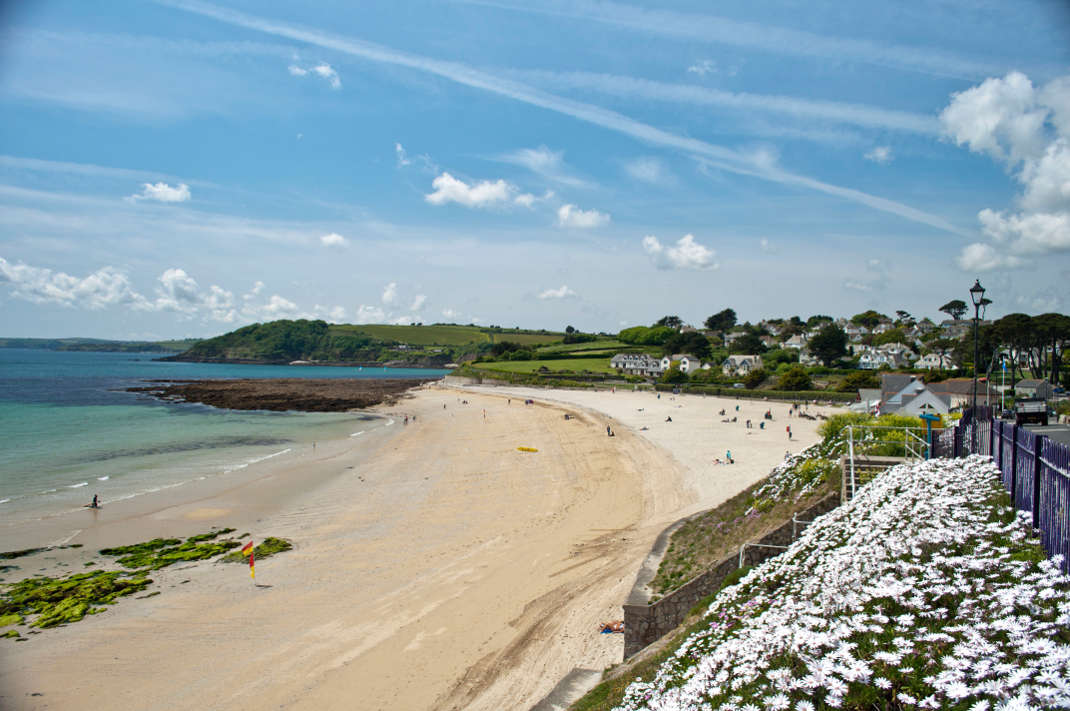
-
-
8 years
Tagged apple, apple fair, apples, art, autumn